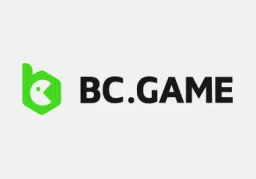Flutter’s pullout from the Dutch market might have an impact of £50 million

Flutter Entertainment, the Irish bookmaker holding company which owns Paddy Power, Betfair, FanDuel, PokerStars, and Sky Betting and Gaming, has reduced its profits expectation for the year. This was due to its short-term departure from the Netherlands and poor sports results in the first few weeks of Q4.
In its Q3 trading report, the firm stated that adjusted earnings before interest, tax, depreciation, and amortization (EBITDA) projections for 2021 – excluding US operations – are now between £1.24bn (€1.46bn/$1.69bn) and £1.28bn, up from prior guidance of £1.27bn-£1.37bn.
Unfavorable sports outcomes in the first 24 days of October, according to Flutter, reduced EBITDA by about £60 million.
It estimated that its temporary Netherlands withdrawal would cost £10 million in Q4 2021 and £40 million in 2022, with the group’s entrance into the regulated market being delayed by its decision to quit only on October 1. The £50 million price tag “assumes we re-enter the market in Q3 2022 and that our Dutch operations break-even in H2 next year as we invest in re-engaging clients.”
Adverse sports results in October will also cost £15 million for its US business, resulting in a loss of £250m-£275m, up from the earlier loss of £225m-275m. The company’s net revenue estimate for its US businesses remains unchanged at £1.285bn-£1.425bn.
Revenue was £1.4 billion in the three months ending September 30, a 9 percent increase or a 12 percent increase in constant currency terms. Sports income increased by 13% to £906 million, while gaming revenue increased by 1% to £534 million. The organization also saw a 13% increase in average monthly players.
Earnings from the United Kingdom and Ireland fell 5% to £491 million, with online and retail down 5% and 6%, respectively. The drop in online sports income was principally driven by a 5% drop in staking year on year, as well as a ten basis point drop in net revenue margin to 9.8 percent. The constricted structure of the comparable Q3 2020 athletic calendar contributed to the staking reduction. Retail revenue in the United Kingdom was 9% higher than in the third quarter of last year. In comparison, income in Ireland was 27% lower, owing primarily to the latter’s delayed easing of Covid regulations. As a result, overall retail profits were almost 90% of what they were in 2019.
Australian sales rose by 20% year on year to £370 million. Sportsbet’s stakes climbed by 15% year on year, but its net revenue margin improved by 40 basis points to 11.1 percent.
Earnings within the international sector-driven mainly by PokerStars – was 3% down year on year, with gaming down 6% and sports up 14%. German product and tax reforms weighed this category, which saw sales increase by 6% when that country was excluded.
US sales increased by 85% to £280 million, with FanDuel contributing 94% of the total (now available online in 12 states). Sports income climbed by 97 percent to £184 million, with sportsbook revenue increasing by 422 percent. With gambling items now accessible in five states, gaming income surged by 65 percent to £95 million.
As a consequence, despite difficult comparatives, including a concentration of big sporting events in the previous year, the business delivered a revenue increase of 12%.
Peter Jackson, CEO of Flutter, said:
“Flutter produced a solid third quarter performance, with double-digit development in our worldwide player base.While a string of customer-friendly performances in October has resulted in win margins that are lower than planned in the quarter to date, the fundamental stability of our company is obvious; we have increased our online recreational player base by 46 percent in only two years. With additional international jurisdictions and US states on the regulatory route, we aim to expand our worldwide player base much more in 2022.”
Researchers at Regulus Partners commented on the findings, saying the loss in the Dutch market is a reminder of the risks taken in grey markets – the cash flow is wonderful but trying to capitalize the value is risky.
Regulus said:
“Flutter continues to show that when it has mass market betting-led strength, it is a durable industry leader. What happens when these qualities do not apply, whether due to the nature of the industry or Flutter’s own offering, is an open question that is currently providing mediocre results.”
While Flutter CEO Jackson did not provide specifics on business expenditures and profitability over the three-month period, he did say the company was “conservative” in its US marketing spending at the beginning of the NFL season. However, according to Harry Barnick, senior analyst at Third Bridge, client acquisition expenses in the United States continue to be an issue.
Barnick commented:
“The US market continues to be a strategic development focus for Flutter, with success in this region seeming essential to the future of the company. As state-by-state legislation opens up, Flutter will be solely aimed at securing licenses and increasing market share in the United States. The land grab is in full force, with Flutter and its competitors spending billions to gain a piece of this booming industry. As the industry matures, proving profitability to investors will become extremely crucial.”
According to media reports this week, Flutter is attempting to purchase sports media property The Athletic. Though the company refuses to comment about it.

























